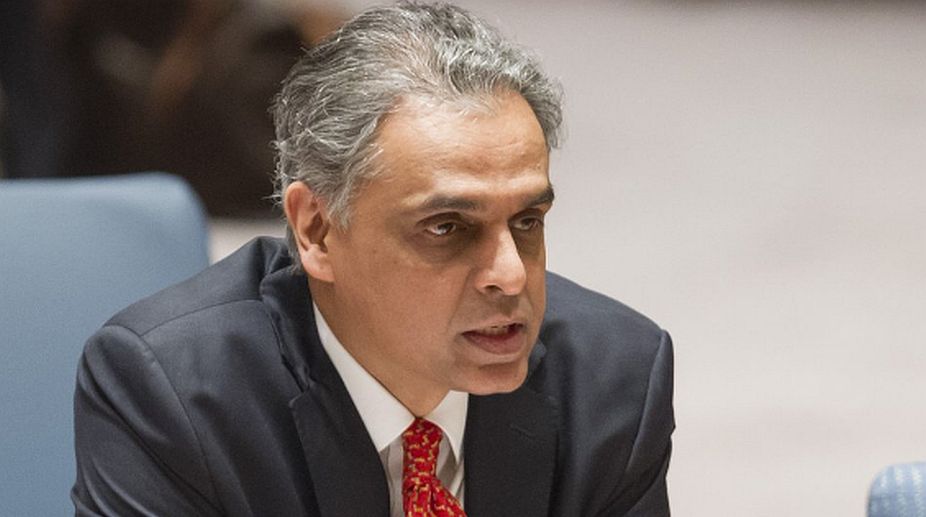India has said that the various options and differing views of nations on Security Council reform should be presented in a negotiating text and no one should insist that their submissions must take precedence over others.
“The first principle of multilateralism is equality,” India’s Permanent Representative Syed Akbaruddin told the Inter-Governmental Negotiaions (IGN) on Council reforms.
The IGN’s two-day session began on Thursday. “What we are suggesting is equal opportunities for everybody to present their options in a document,” Akbaruddin said.
No one can “ask that my submission of principles should be discussed first and then only rest follows,” he said.
“Opposition to a certain position is normal and indeed democratic,” Akbaruddin said. But “opposition to normalising the process (of negotiating) is not.
“Allowing drift in terms of normalising the process endangers the legitimacy and credibility of this mechanism and the General Assembly itself.”
The IGN process has been stuck for at least a decade at the preliminary step of trying to come up with a negotiating text that would be the basis for discussions.
The principle opposition to the adoption of a negotiating text comes from a group of countries known as Uniting for Consensus, which is led by Italy and includes Pakistan.
They contend that unless there is consensus on reforms, there cannot be negotiating text.
A negotiating “document will provide clarity to where we stand, what are the options, who is proposing what and what are the inter-linkages,” Akbaruddin.
“Documenting positions in a holistic and transparent manner is what we seek from you as the way forward.”
The current IGN co-chairs, Permanent Representatives Lana Zaki Nusseibeh of the UAE and Kaha Imnadze of Georgia, would achieve a breakthrough if they could produce such a document, which their predecessors have failed to do.
Akbaruddin said they should produce an “inclusive and holistic document for our transparent consideration so that we can involve in negotiations on it”.
“It is not our case that the document that you prepare needs to have only one option,” he said. “It can have, in every cluster, every option that can be distilled.”
Akbaruddin said that there was consensus on the need for reform but it has not translated into action because of the lack of a rolling document that records the views expressed in each of the sessions and carries them on as the basis for negotiations.
The Framework document produced by Courtenay Rattray, who was the IGN chair during 2014-15, was believed by many to have the potential to be the negotiating text. But after he left the position, the momentum was lost.
The co-chairs, Khalid Khiari and Ion Jinga, prepared a paper listing the commonalities and issues for further consideration for reform, Akbaruddin said.
Its shortcomings in not adequately reflecting the views of the African nations can be rectified, he said.
“The document that you present needs to reflect principles that some delegation or the other find important to reflect as an option for others to consider,” he told the current co-chairs.










